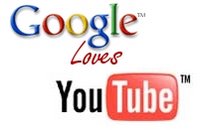The DataPortability Workgroup dropped a bombshell this morning by announcing:
the inclusion of Joseph Smarr (Plaxo), Brad Fitzpatrick (Google) and Benjamin Ling (Facebook) to the DataPortability Workgroup.
Quoted from: Chris Saad (one of the drivers behind dataportability.org) on the Particls.Blog
Marshall Kirkpatrick added some additional insight into this announcement on ReadWriteWeb:
The non-participation of Google and Facebook, two companies that hold more user data and do more with it than almost any other consumer service on the market, was the biggest stumbling block to the viability of the project. These are two of the most important companies in recent history – what’s being decided now is whether they will be walled-garden, data-horders or truly open platforms tied into a larger ecosystem of innovation with respect for user rights and sensible policies about data.
…
If these industry titans can put aside their rivalry and work together – magic could happen. Hopefully they can work appropriately with the other members of the working group, bleeding edge consultants and representatives of smaller and in many cases more user-centric companies. If so, perhaps we can move appropriately into a future of powerful personalization and logically augmented activity online – while avoiding Minority Report-style dystopian scenarios.
Innovation on the internet is in its early, early days. The participation of representatives from Google and Facebook in this initiative could prove key in the continued development of what’s possible, instead of the early suffocation of what could have been.
Quoted from ReadWriteWeb
I have blogged here many times about the idea of online identity, but the potential for data portability that has been more of hope than a reality until now. I already use ClaimID as my primary OpenID provider. Ideally, I would love to manage my identity through an OpenID provider of my choice, but with more options to carry some of my data around the internet along with this identity. I hope to eventually be able to have a centrally managed picture, bio, profile information, and more that I can choose to share with online social networking sites (like Facebook) allowing me to maintain better control over my information and manage changes. Changing basic information (job change, phone number, etc.) can be a really labor intensive task for me. I remember going through this recently when I joined Jive in May. I would be willing to bet that you can still find old profiles on web 2.0 sites that still have me listed as working at Compiere or even Intel!
Data portability is one of the biggest problems that web 2.0 companies and users face, and I have been following dataportability.org with interest, but a healthy amount of skepticism. With the addition of Google and Facebook, I have much more confidence that we will start to see this hope move closer to the reality of data portability over time.
Jive has been focused for years on building our products using existing standards, and we are excited about what this might mean for Clearspace and other products. You can read Sam Lawrence’s perspective on this discussion and what it might mean to Jive over on the Jive Talks blog.
Related Fast Wonder Posts:





